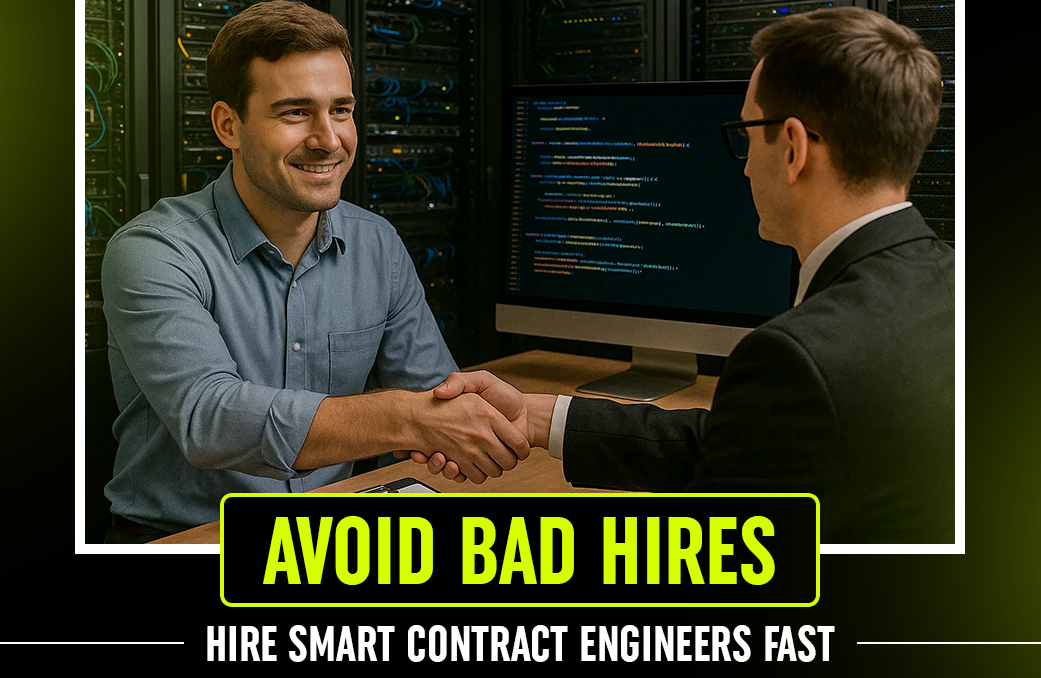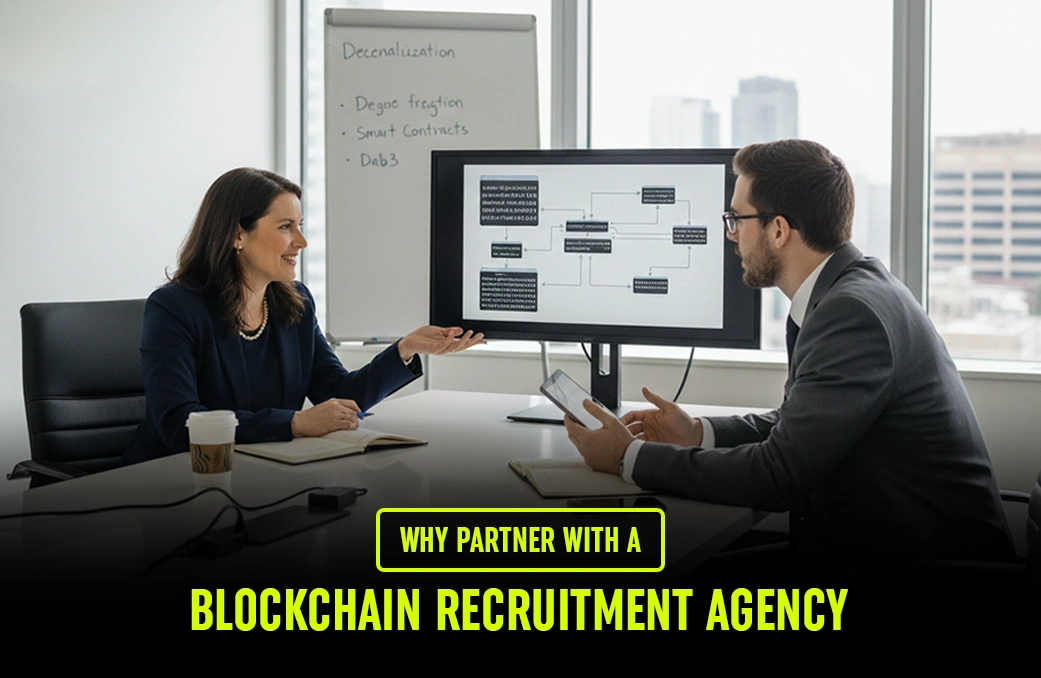
Are you planning to hire smart contract engineers but are not sure where to start? Have you been in interviews where the questions felt wrong or the candidates did not seem like the right fit? Many crypto as well as blockchain companies face the same struggle.
In Web3, choosing the right person goes beyond just technical skills. You also need someone who understands security, can work well with a team, and knows how to solve real problems quickly. With demand for blockchain talent growing fast in 2025, competition is high, and mistakes in the hiring process can be costly. The good news is that with the right approach, you can attract and choose the perfect person for your project.
Let’s go through some of the most common mistakes companies make when hiring and see how you can avoid them to build a stronger, more reliable team.
When you’re interviewing in Web3, the process can feel fast-moving and a little overwhelming. The competition for good talent is high, and it’s easy to make mistakes that cost you the perfect hire. Below are seven common mistakes many crypto and blockchain companies make when they hire smart contract engineers—and how you can avoid them:
Vague listings like “Web3 developer wanted” don’t attract the right applicants. Instead, ask yourself: “What exact skills do I need in a smart contract engineer?” Be specific—Solidity, audit experience, familiarity with Layer-2 rollups—and turn that into a clear job description.
If you offer too little, top candidates will likely turn down the role. Smart contract engineers are in high demand, and they know their worth. Before you start hiring, take time to research the average pay range in the global market. This helps you make a competitive offer that attracts skilled professionals and shows you value their expertise.
Yes. Technical proficiency is vital, but clear communication matters too. Ask scenarios like “How would you explain gas optimisation to a non-technical stakeholder?” This reveals if the engineer can also be a team player.
When you need someone fast, it’s tempting to speed through interviews and hire the first person who looks good on paper. But rushing often leads to poor choices. Smart contract engineers work on critical code that must be secure and reliable, so it’s worth taking time to check skills, review test work, and ask the right questions. A slower, more thoughtful approach reduces the risk of hiring someone who can’t meet your project’s needs.
Don’t just ask theoretical questions. Include a short, safe take-home task (e.g. “Write a simple ERC-20 transfer function and outline re-entrancy risks”). It’s quick to review, keeps the process fair, and shows practical ability.
Many companies don’t tell unsuccessful candidates why they weren’t chosen. This might save time now, but it can harm your reputation later. Even a short email thanking them and explaining they weren’t the right fit can leave a positive impression. Candidates will remember your professionalism and might apply again in the future.
In 2025, the demand for smart contract engineers is truly global. Skilled professionals can be found in many different regions, and limiting your search to just one place or one platform can mean missing out on the right person. By widening your reach and using multiple channels, you give yourself the best chance of finding talented engineers who are a perfect fit for your team.

Interviewing for a smart contract engineer role is not the same as hiring for a traditional tech position. Below is a simple side-by-side look at how a traditional hire compares to a smart contract engineer hire, along with why each difference matters:
Hiring the right person can make all the difference to your blockchain project. At WORK IN CRYPTO, we connect you with skilled and trusted crypto talent from around the world. Whether you need someone for a short-term project or a full-time role, we make the hiring process simple, fast, and reliable.
Don’t take chances with the future of your Web3 business. Contact us today and find the smart contract engineer who can bring your ideas to life.
1. How can I effectively hire smart contract engineers in 2025?
Ans: Be specific in your job descriptions, benchmark salaries, use hands-on tasks, and widen your talent reach globally.
2. What’s a safe technical take-home task?
Ans: For example, ask for an ERC-20 transfer function with comments on security pitfalls (like re-entrancy)—enough to assess logic and clarity, without revealing sensitive code.

Struggling to hire blockchain talent? See how a specialist blockchain recruitment agency helps you find top candidates with accuracy, speed, and precision.
Read Full Blog
See how crypto recruitment agencies make hiring faster and find vetted candidates through WORK IN CRYPTO.
Read Full Blog
Web3 talent acquisition is changing fast as 2026 approaches.
Read Full Blog